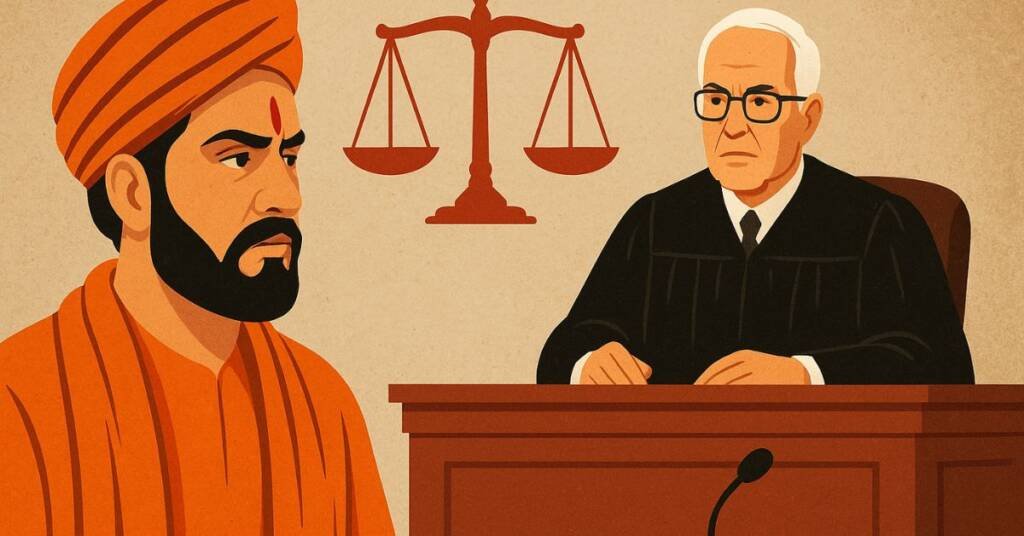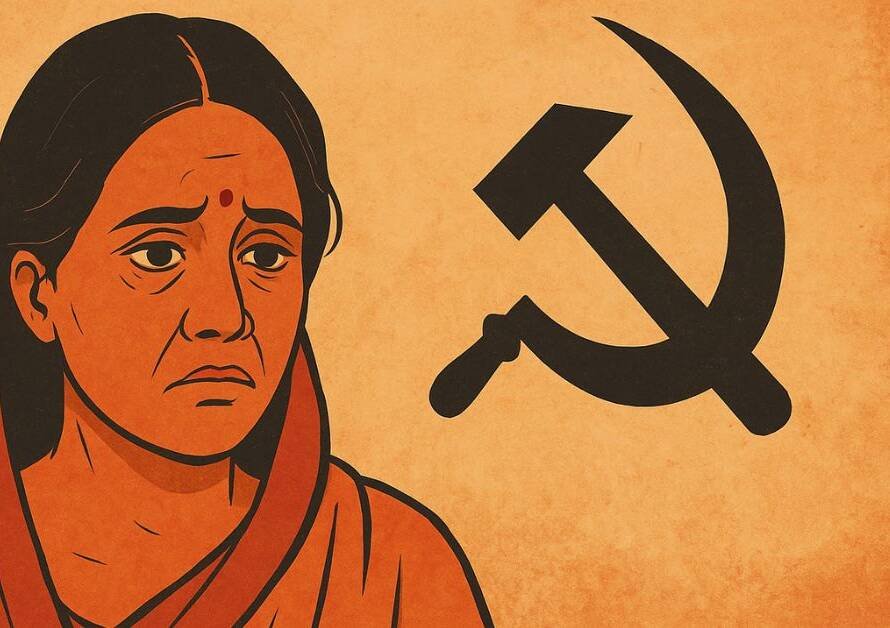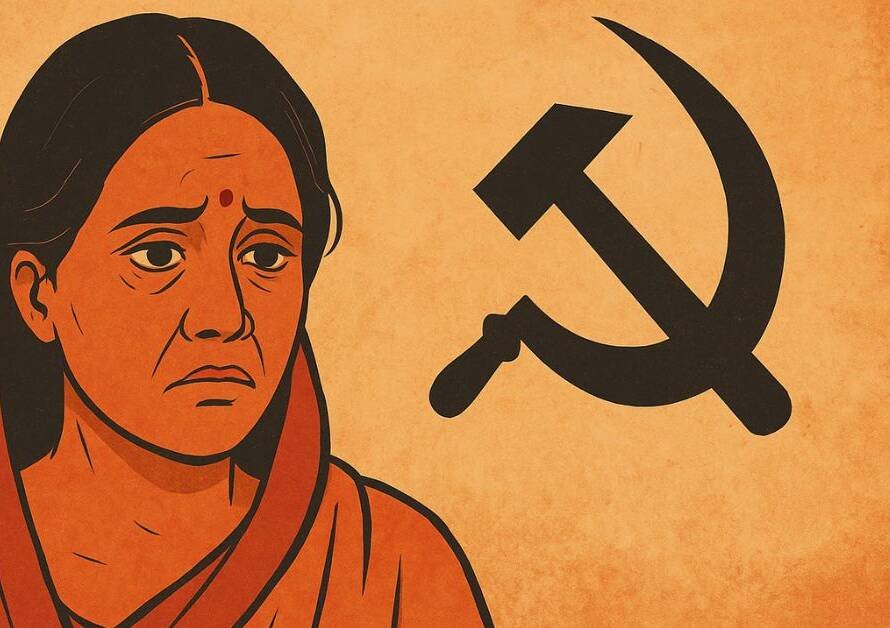1. Introduction: A Landmark Judgment in Defense of Justice
On October 11, 2025, the Kerala High Court delivered a judgment that shook the entire nation.
- The Court struck down the Waqf Board’s arbitrary declaration of 404 acres of land in Munambam as Waqf property — exposing what it called a “land-grab conspiracy under a religious disguise.”
- This ruling brought relief to over 600 Hindu families who faced eviction.
- The Court warned that if such actions continue, even the Taj Mahal, Red Fort, or the Court itself could be declared Waqf property.
This was not just a judicial order — it was a wake-up call for Bharat, a defense of justice, equality, and national integrity.
2. The Background: A Century-Old Land Dispute
The roots of this conspiracy go back over a century:
- In 1902, the Travancore royal family leased the land to a local trust.
- In 1950, the land was gifted to Farooq College through a simple deed.
- Suddenly, in 2019, the Kerala Waqf Board claimed the entire 404 acres as Waqf property, without producing a single valid legal document.
This shocking move placed hundreds of families under the threat of eviction — until the High Court intervened to deliver justice.
3. The High Court’s Firm Stand: “Waqf Board’s Claim is Invalid”
The Division Bench of Justice S.A. Dharmadhikari and Justice Shyam Kumar V.M. made the following critical observations:
- The land was never dedicated for Waqf purposes.
- The claim, made 69 years after the gift deed, was arbitrary, baseless, and invalid.
- The Waqf Board’s act was a deliberate attempt to seize land under religious disguise.
- The Court also noted the complicity of the state government, which failed to protect citizens’ rights.
4. The Dangerous Pattern: A Nationwide Conspiracy
Munambam is not an isolated incident. Across India, hundreds of similar cases have emerged where the Waqf Board has attempted to grab land under the guise of religious authority.
Examples include:
- Tamil Nadu (Tiruchenthurai): 1,500-year-old Sundareswarar temple land claimed by Waqf Board.
- Gujarat and Karnataka: Government lands encroached with fake ownership documents.
- Telangana (Jubilee Hills): Defense Ministry land disputed by Waqf Board.
📊 The scale of the problem:
- India has 8.72 lakh Waqf properties.
- 58,889 have reported encroachments.
- 13,200 are trapped in legal disputes.
It is evident that the Waqf Board has transformed from a religious trust into a parallel land empire, often functioning with jihadi and expansionist motives.
5. The Old Waqf Act: A System of Injustice Against Hindus
- For decades, the old Waqf Act shielded the Board’s arbitrary actions and denied justice to Hindus.
- Disputes could only be heard in special Waqf Tribunals, dominated by members from the Muslim community.
- These tribunals often dismissed Hindu petitions outright, making justice practically impossible.
- Once a property was declared as “Waqf,” the original owners lost all legal recourse.
This was a grave flaw in India’s justice system — one that systematically excluded Hindu victims from fair representation.
6. The New Waqf (Amendment) Act 2025: Restoring Justice
Recognizing this injustice, the Modi government enacted the Waqf (Amendment) Act, 2025 — a historic step to curb the Board’s unchecked powers and protect citizens’ rights.
Key reforms include:
- All disputes to be heard in regular civil courts, not Waqf-only tribunals.
- Fast-track adjudication of pending land cases.
- Mandatory verification of all Waqf property documents.
- Properties lacking valid deeds to be restored to rightful owners.
- Criminal penalties for fraudulent claims and encroachments.
- Establishment of a national-level Waqf Audit Commission for transparent oversight.
This act has opened the door to justice for thousands of Hindu families who were silenced for decades.
7. Kerala’s Communist Government: The Politics of Appeasement
- The Kerala Communist government, which calls itself “secular,” has long engaged in minority appeasement politics to maintain its vote bank.
- The 2019 Waqf declaration could not have happened without state complicity.
- The government initially suppressed the appointment of an inquiry commission, which the High Court has now reinstated.
- The state’s repeated defense of illegal Waqf actions exposes its double standards — hiding anti-Hindu bias behind a mask of secularism.
This pattern shows that for the Left, “secularism” often means appeasement of one community and suppression of another.
8. The Way Forward: Ensuring Swift and Fair Justice
- While the Munambam verdict is a victory, it must pave the way for nationwide reform and accountability.
- Conduct a comprehensive audit of all Waqf properties.
- Return properties without valid documentation to their original lawful owners.
- Hear all related cases in fast-track courts for timely justice.
- High Courts should avoid entertaining appeals that delay justice to the victims.
- Establish a Central Waqf Monitoring Authority to ensure transparency and prevent future abuse.
Justice delayed is justice denied — and Bharat cannot afford to let such conspiracies fester any longer.
9. The Broader Message: From Kerala to All of India
- The Munambam verdict is not just a regional matter —
it represents the awakening of India against decades of silent land jihad conducted under state protection. - The judiciary has taken a stand for truth and equality.
- This verdict sends a message that India’s Constitution will not tolerate injustice in the name of religion.
- It is a victory for every Indian who believes in Dharma, law, and justice.
10. A Warning and a Call to Action
The Waqf Board’s growing power is no longer about religious management — it has become a systematic land-grab operation threatening India’s integrity.
The Kerala High Court’s warning —
- “If such arbitrary claims are allowed, even the Taj Mahal or the Court itself could become Waqf property” —
is a chilling reminder for every Indian.
Now is the time for collective awakening.
- India must stand united against appeasement, injustice, and religious exploitation.
11. Message: Justice for Bharat, Justice for Dharma
- This is not just a legal victory — it is a spiritual and civilizational triumph.
- It symbolizes the protection of Bharat’s soil, heritage, and Dharma.
Every Sanatani, every nationalist, must ensure that no institution, under any faith, can ever again claim India’s land or justice system as its property.
🇮🇳 Jai Bharat, Vandematram 🇮🇳
For old Blogs please visit our website www.saveindia108.in
To join our whatsapp Community please click
https://chat.whatsapp.com/FMr2WNIgrUVG9xK78FW5Dl?mode=r_t
To join our Telegram group please Click https://t.me/+T2nsHyG7NA83Yzdl Old Blogs are available on the telegram group also.







